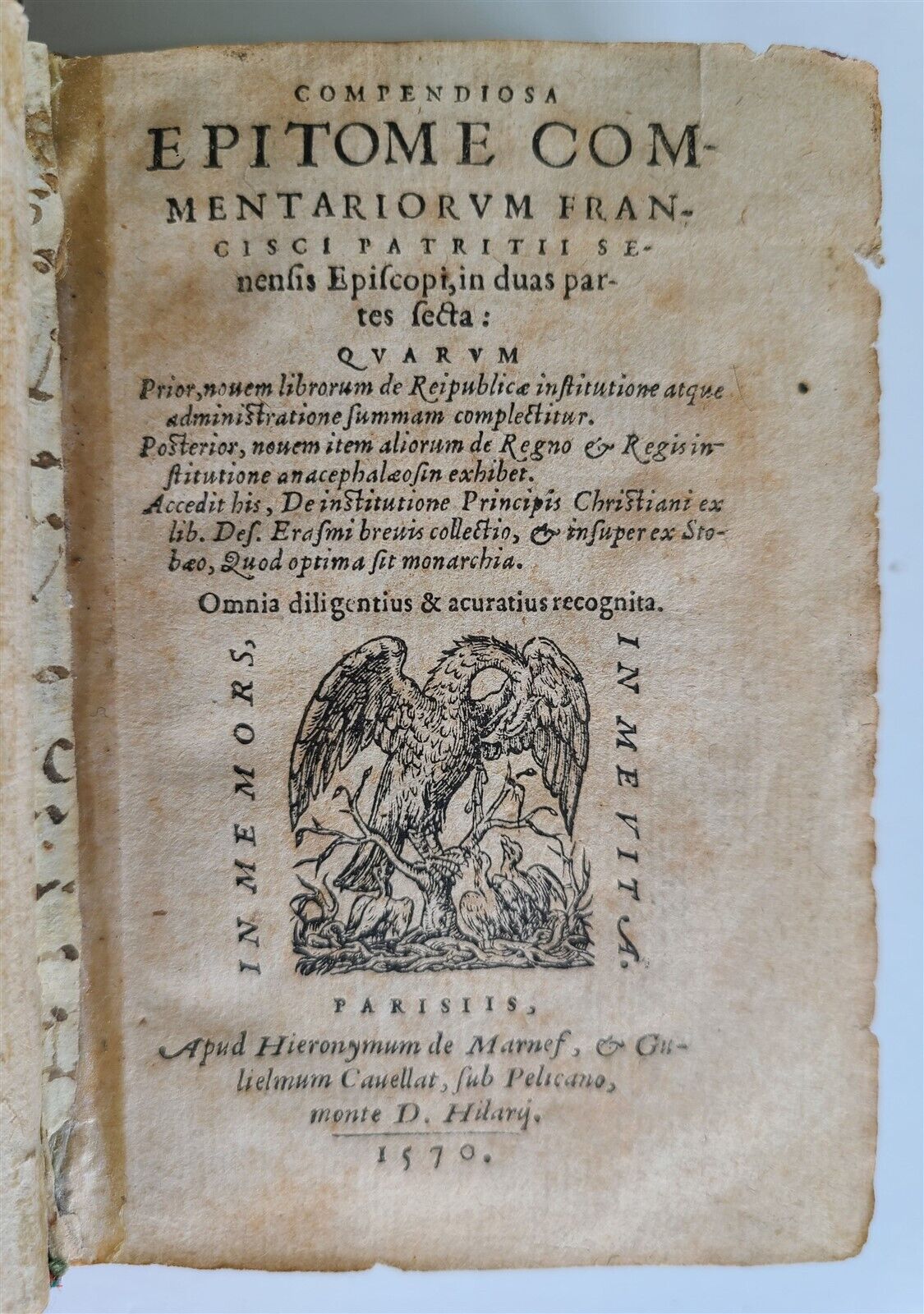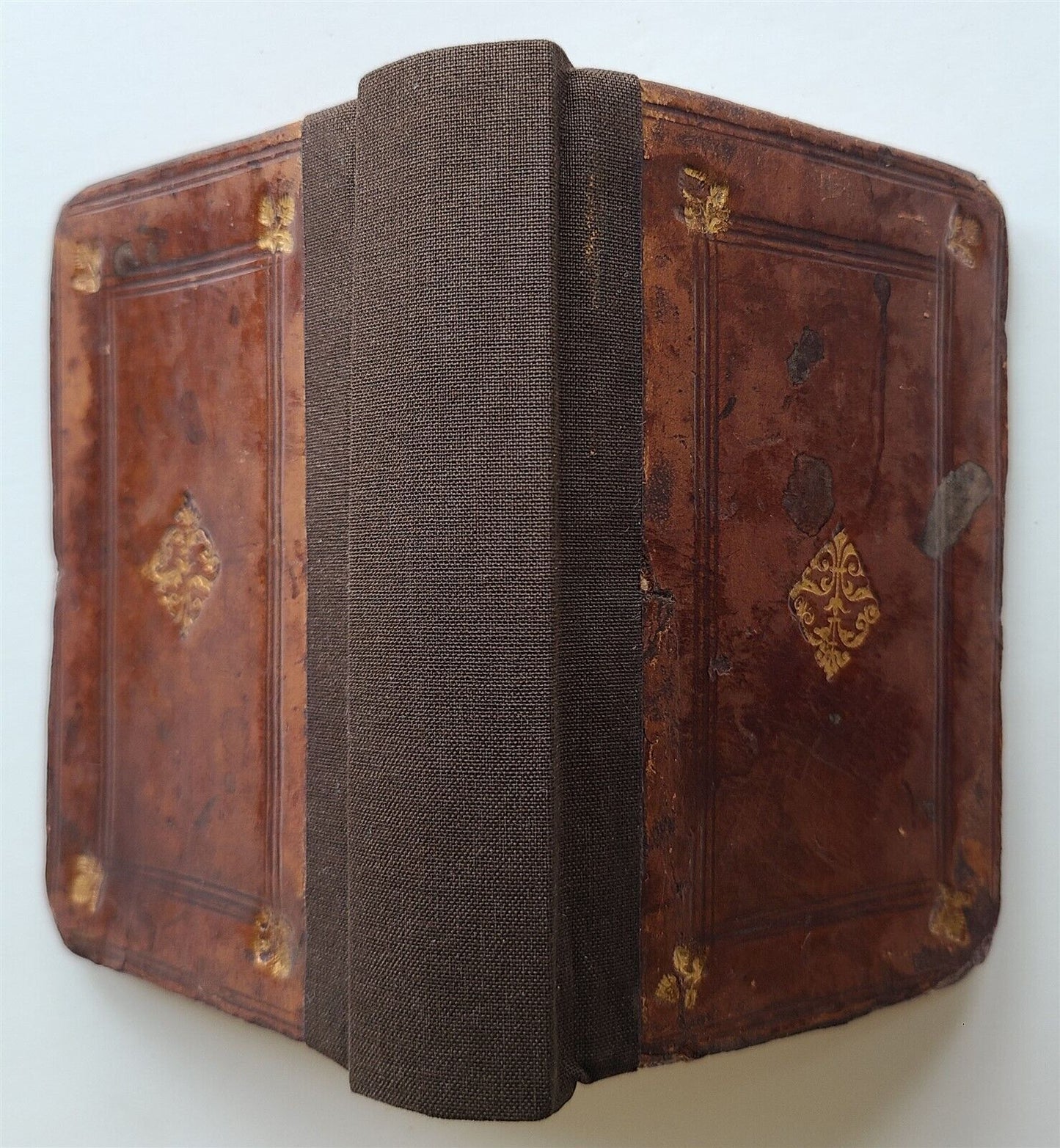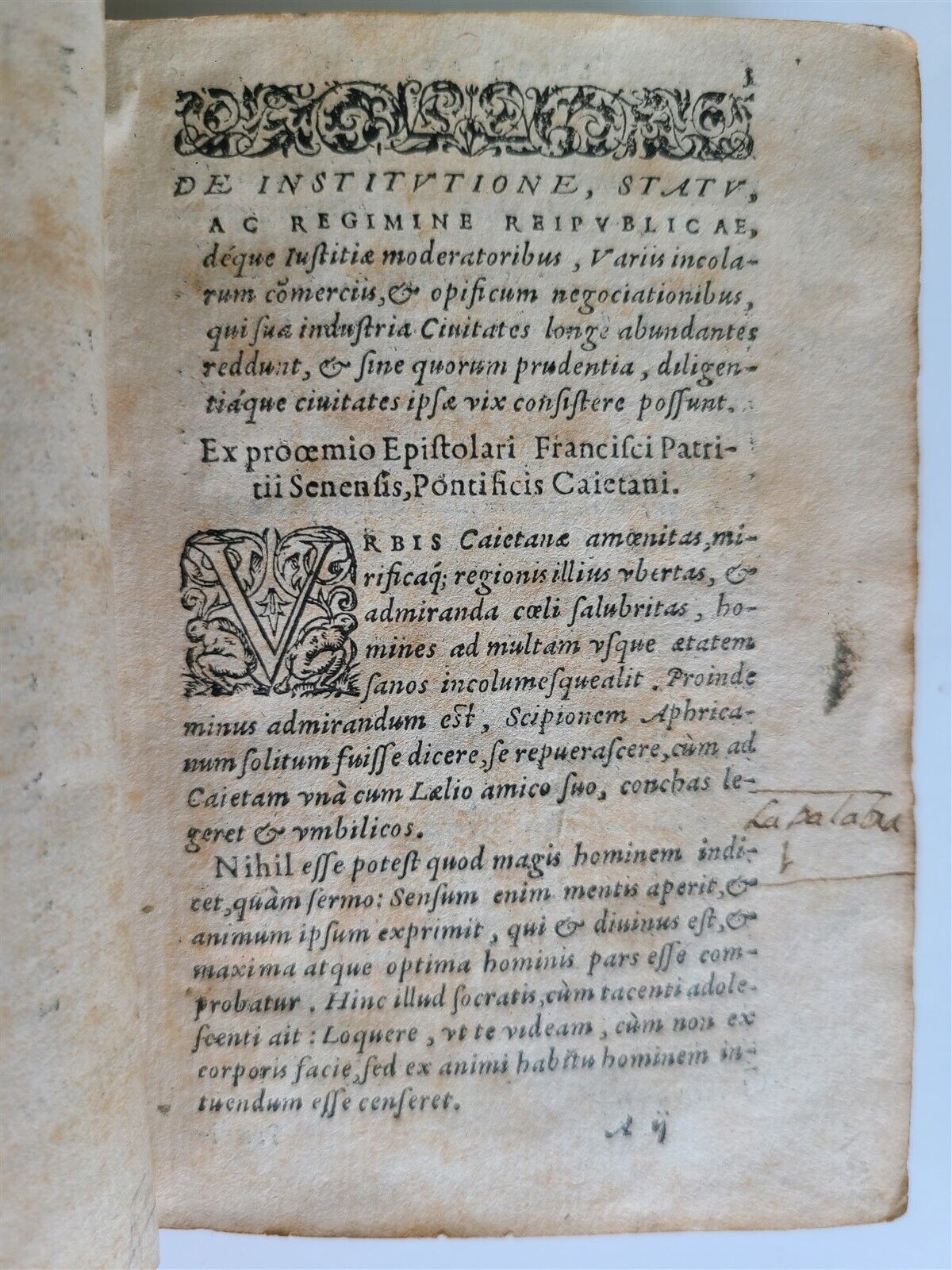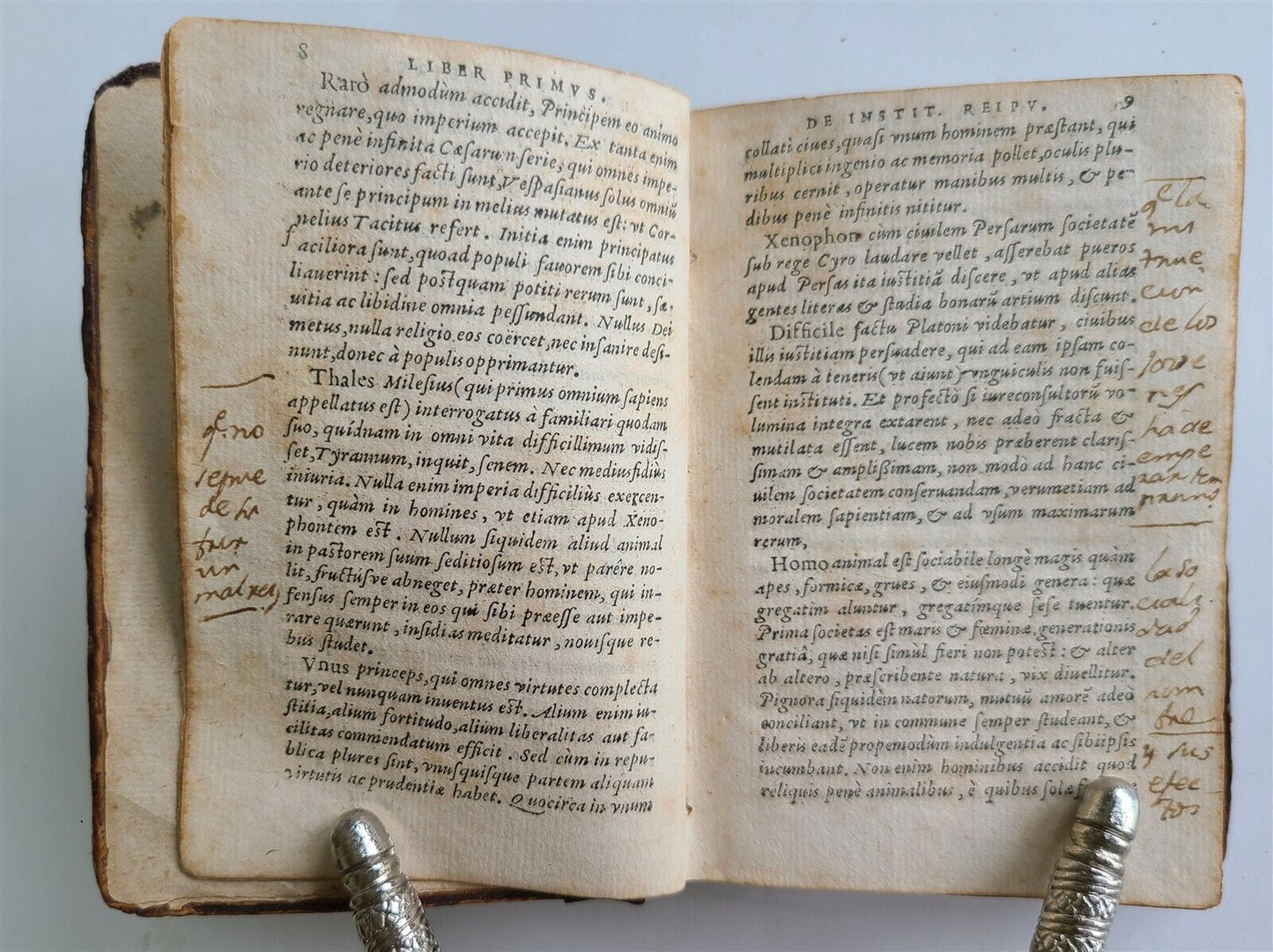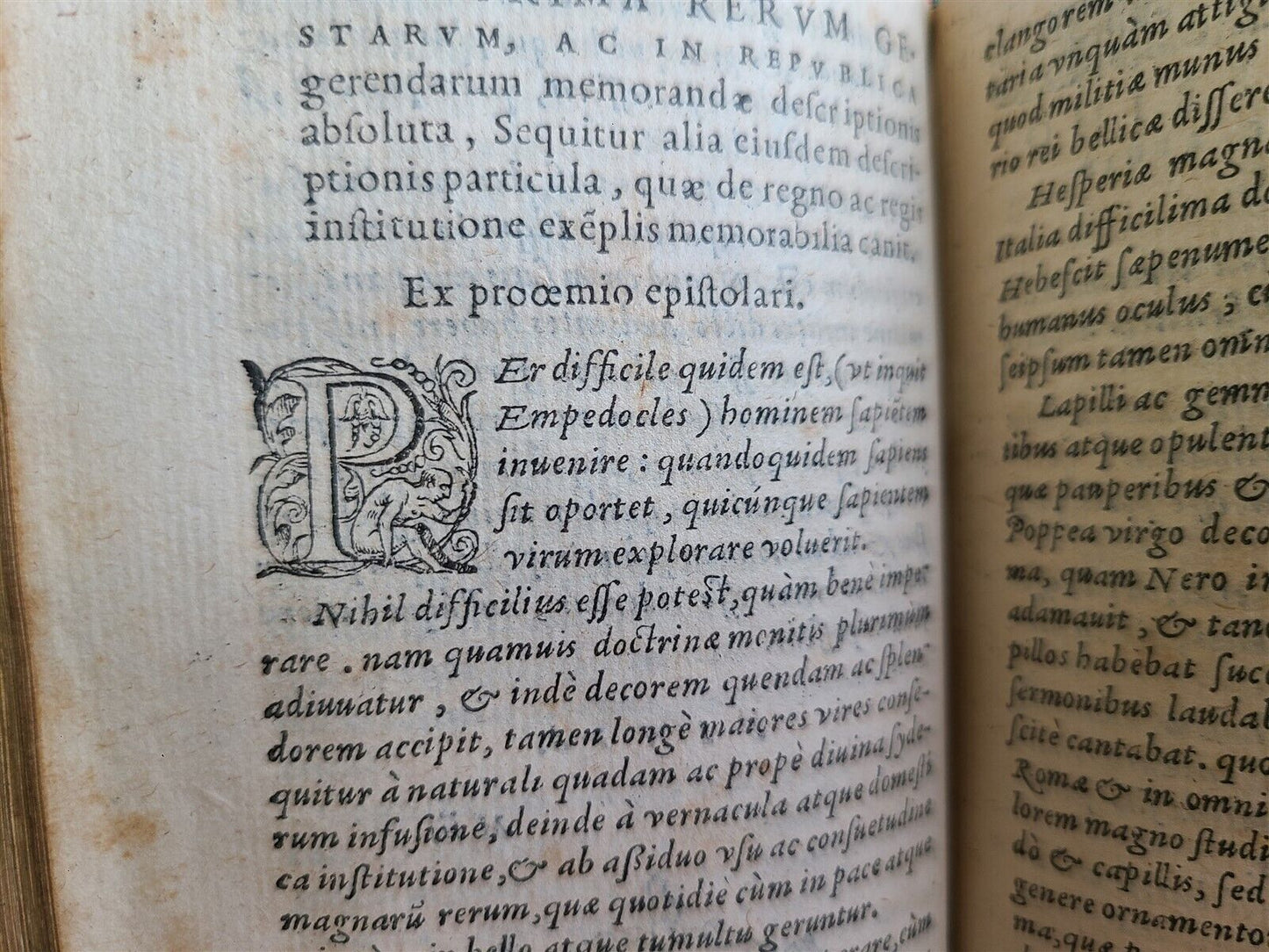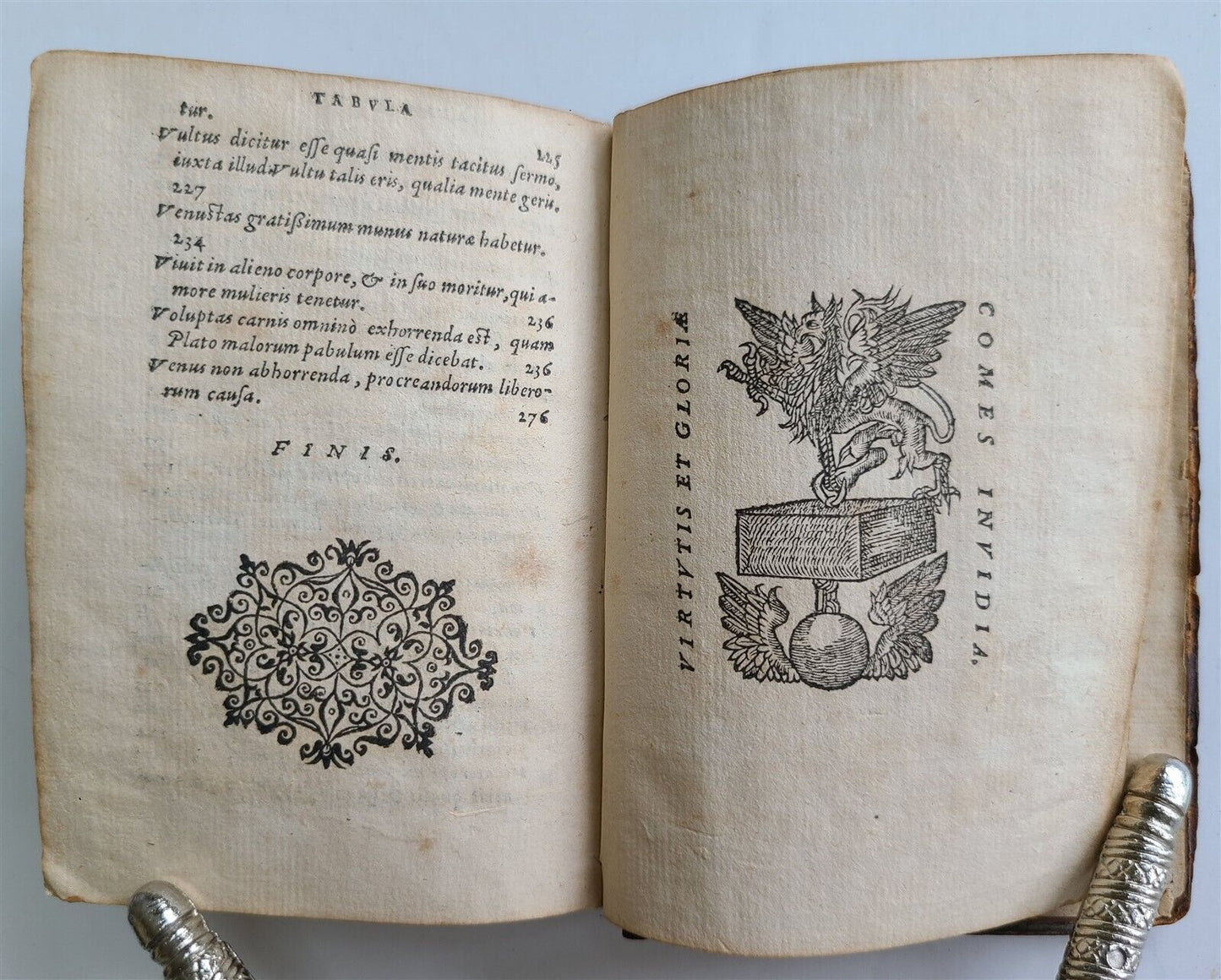Motka
1570 PHILOSOPHY by Francesco PatriziVantique w/ ORIGINAL 16th CENTURY BINDING
1570 PHILOSOPHY by Francesco PatriziVantique w/ ORIGINAL 16th CENTURY BINDING
Regular price
$349.30 USD
Regular price
$499.00 USD
Sale price
$349.30 USD
Unit price
per
Couldn't load pickup availability
img{max-width:100%}
Patrizi, F.
Compendiosa Epitome Commentariorum Francisci Patritii Senensis Episcopi, in Duas Partes Secta.
Paris, Hieronymus de Marnef and Guillaume Cavellat, 1570
392,(28)p.,
Original gilt calf
Size 3 1/4 by 4 3/4"
scattered old annotations in the first part.
Rebacked with modern cloth
text in Latin
====================================
Francesco Patrizi (1529 Cres, Republic of Venice (now Croatia) - 1597 Rome, Papal States)
Franciscus Patricius was a philosopher and scientist from the Republic of Venice, originating from Cres.
He was known as a defender of Platonism and an opponent of Aristotelianism.
His national origin differs in sources, and he is described both as Croatian and as Italian.
Patricius initially dedicated his studies to Aristotelian Philosophy at the University of Padua, but turned to Platonism while still a student. He became a sharp, high-profile opponent of Aristotelianism, with whom he grappled extensively in extensive writings.
After many years of unsuccessful efforts to secure material livelihood, he finally received an invitation in 1577 to the Ducal Court of House of Este in the Duchy of Ferrara.
At the University of Ferrara, a chair for Platonic philosophy was set up especially for him.
In the years that followed, he gained a reputation as a professor, but was also involved in scientific and literary controversy; he tended to polemic and was in turn violently attacked by opponents.
In 1592 he accepted an invitation to Rome, where thanks to papal favor a new chair was created for him.
The last years of his life, were embroiled in a serious conflict with the Roman Inquisition, which banned his main work, the Nova de universis philosophia.
As one of the last Renaissance humanists, Patricius was characterized by extensive education, varied scientific activity, a strong will to innovate and exceptional literary fertility.
He critically examined established, universally recognized teachings and suggested alternatives.
In particular, he wanted to replace the prevailing Aristotelian natural philosophy with his own model.
He opposed the traditional view of the meaning of historical studies, which was usually restricted to moral instruction, with his concept of a broad, neutral, scientific historical research.
In Poetry he emphasized the importance of Inspiration and fought against conventional rules, which he considered to be arbitrary, unrealistic restrictions on creative freedom.
In the Early Modern Period, Patricius's strongly controversial philosophy of nature found considerable echo despite the church's condemnation, but remained an outsider position. Modern research recognizes his contributions to the constitution of modern concept of space and to historical theory.
===============================================
Please see my other auctions
Thank You
Refund Policy: We will issue a FULL REFUND, 100% money back if you are not satisfied with your purchase. Items must be returned to us within 20 days in order to receive a refund or replacement. Buyer is responsible for shipping costs.
Powered by SixBit's eCommerce Solution
View full details
